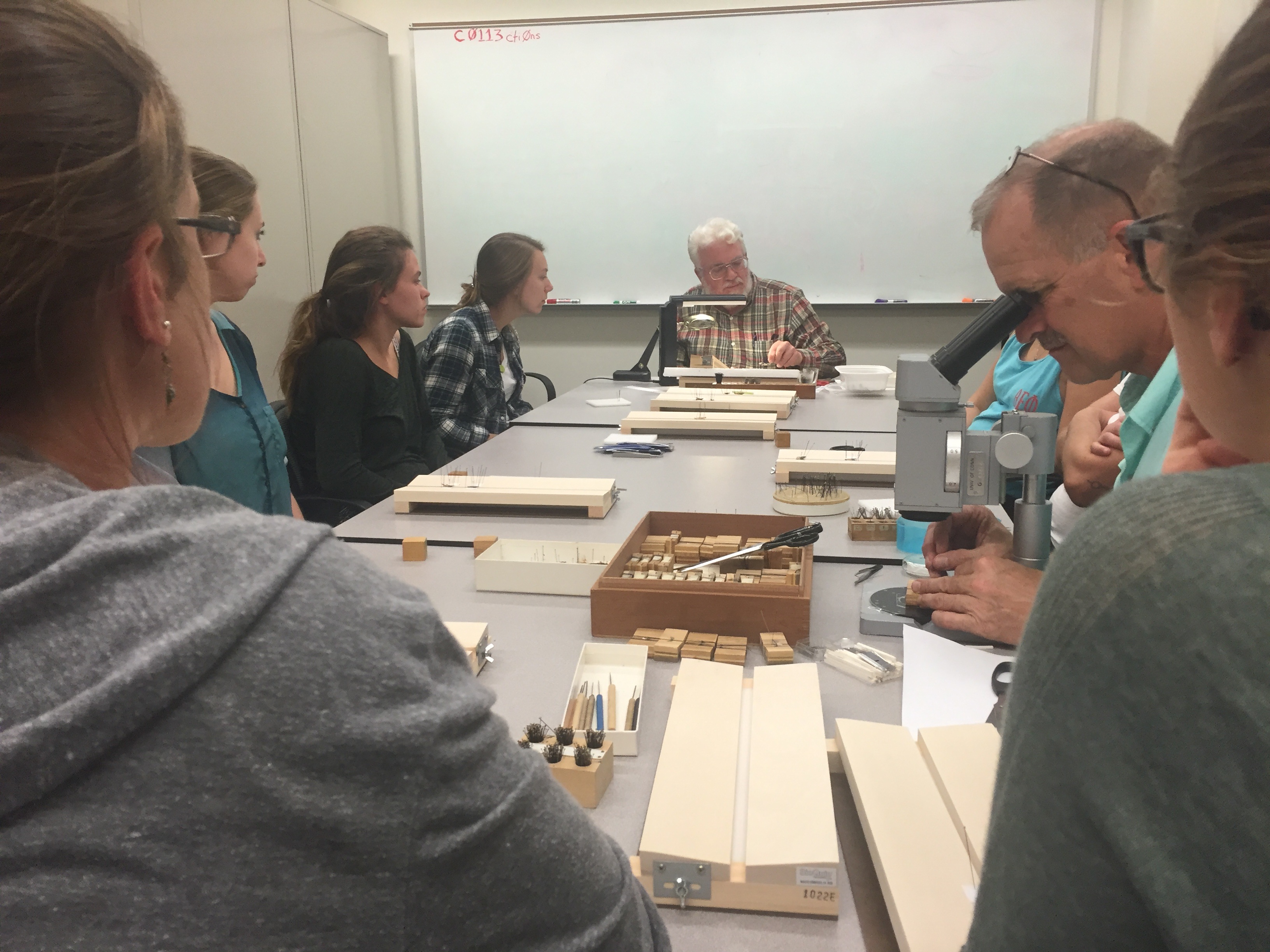
INTRODUCTION TO NATURAL HISTORY COLLECTIONS
— Fall Semester 2025 —
September 9, 11, 16, 18
Instructors: Drs. Erin Kuprewicz, Katrina Menard, and Sarah Taylor
Assisted by: Drs. Bernard Goffinet, Janine Caira, and Veronica Bueno
Location of lectures: TLS 181
Location of practical sessions: BPB Rooms 112 & 115 (EEB Biodiversity Research Collections, BRC)
URL: https://biodiversity.uconn.edu/collection-course-eeb-5500/
Objectives: Students will learn about the history, utility, and importance of biological collections, as well as how to appropriately care for and study specimens from the Department of Ecology & Evolutionary Biology’s Biodiversity Research Collections. Upon completion of this course, students will be able to: (1) Describe the variety of ways that natural history collections contribute to our understanding of the natural world. (2) Compare specimen organizational schemes for different taxonomic groups. (3) Demonstrate familiarity with Collections policies by applying them to potentially challenging situations in natural history collections care. (4) Discuss legal and ethical quandaries that confront collections managers, curators, and users of biological collections.
Note: This course is required for anyone wishing to use or work in the EEB Biodiversity Research Collections.
Tuesday, September 9
6:00-6:15 pm Introduction to course (Taylor)
6:15-6:30 pm Class introductions (all students)
6:30-7:15 pm Importance of Natural History Collections (Goffinet)
7:15-8:00 pm History of the EEB Biodiversity Research Collections (BRC) (Caira)
8:00-9:15 pm In-depth tour and exploration of the collections, with facility procedures and specimen handling protocols (Kuprewicz, Menard, Taylor)
—————————————————————————————————————————————–
Thursday, September 11
6:00-6:50 pm Threats to Natural History Collections (Menard)
6:50-7:50 pm Organization of Collections (Group Exercise) (Kuprewicz, Menard, Taylor)
7:50-8:30 pm Class splits in half and participates in VERTEBRATE specimen preparation and labeling (Kuprewicz) or INVERTEBRATE specimen preparation and labeling (Menard)
8:30-9:15 pm Class halves switch preparation activities
—————————————————————————————————————————————–
Tuesday, September 16
6:00-6:30 pm Voucher and type specimens: What are they and why do they matter? (Menard)
6:30-6:50 pm Overview of collection databases (Kuprewicz)
6:50-7:30 pm Uses for specimen data (Assignment 1 – preparation required for Group Discussion)
7:30-8:20 pm Class splits in half and participates in ENDOPARASITE specimen preparation and labeling (Bueno) or PLANT specimen preparation (Taylor)
8:20-9:15pm Class halves switch preparation activities
—————————————————————————————————————————————–
Thursday, September 18
6:00-6:30 pm Permits, transactions, and breaking the law (Kuprewicz)
6:30-7:00 pm Societies and organizations; training; careers; resources (Taylor)
7:00-8:00 pm Collection policies (Assignment 2 – preparation required for Group Discussion) (Kuprewicz, Taylor, Menard, Goffinet, Caira)
8:00-8:30 pm Collecting and collections: ethical issues (Assignment 3 – preparation required for Group Discussion) (Taylor, Kuprewicz, Menard, Goffinet, Caira)
8:30-9:00 pm Stories from the field (Menard)
9:00-9:15 pm Course Evaluations
—————————————————————————————————————————————–
Grading is on a Satisfactory/Unsatisfactory basis; participation in all four sessions is mandatory for a Satisfactory grade.
All applicable university policies are referenced at this url: http://provost.uconn.edu/syllabi-references/ and should be considered part of this syllabus.